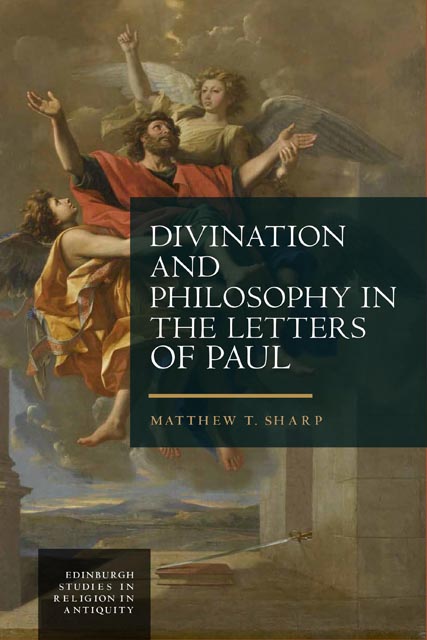4 - Texts
Published online by Cambridge University Press: 02 June 2023
Summary
The last chapter examined the phenomenon of prophetic speech in Paul’s letters. Prophetic speech was not always spontaneous but sometimes drew on oracles that had been delivered previously and stored up in tradition or in writing. When Paul explicitly quotes speech from a divine being, his largest source by far is the various texts that make up the Jewish sacred writings, which he says preserve the “oracles of God” (Rom 3:2; cf. 11:4). Written oracle collections were a common feature of the ancient world, where they were generally understood to be the written records of oracles previously uttered under inspiration, either by the priest at an official oracle sanctuary, such as Delphi or Dodona, or by independent inspired figures of the legendary past, such as Bacis, Musaeus, or the Sibyl.This chapter further examines Paul’s use of sacred texts both as a part of his own divinatory repertoire, and as part of the divinatory use of texts in the ancient world.
Scholars have generally resisted seeing any analogy between Paul’s use of scripture and such oracle collections of the ancient world, more often viewing “scripture” as a uniquely Jewish category, with Paul as a uniquely Christian interpreter of it.Recently, however, those who have applied the term “divination” to Paul have made “textual divination” a matter of first importance in comparing Paul with his environment. Wendt and Eyl have both recontex-tualised Paul’s textual practices within the divinatory use of texts such as Homer, Orphic literature, or the Chaldean Oracles.Eyl notes that divinatory interpretations of texts exist on a sliding scale, with bibliomancy on one end: “the practice of opening (or unrolling) a text, pointing to a random passage, and imagining that it delivers a prophetic message to or about an inquirer.”On the other end of the scale are interpretations that employ “a greater cognitive investment through intellectual concepts such as metaphor, allegory, theories about the cosmos and gods, complex textual interpretations, and even more complex reinterpretations.”Both Eyl and Wendt draw on the work of Struck to posit allegory, understood in a broad sense, as the basic hermeneutical stance underwriting all such divinatory practice in Paul and his wider context.The basic presupposition is that such texts are repositories of hidden truth, possessing deeper meaning than what is apparent on the surface.
- Type
- Chapter
- Information
- Divination and Philosophy in the Letters of Paul , pp. 133 - 162Publisher: Edinburgh University PressPrint publication year: 2023



